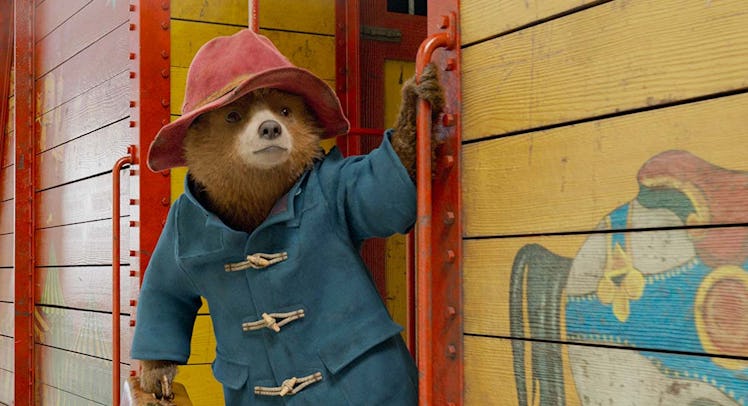Let Paddington Be Paddington
The film can be analyzed on a deeper level but does that mean it should?

We are less than two weeks into 2018 but Paddington 2 has already made a strong case as the best kid’s movie of the year. It’s a wonderful sequel that manages to recapture everything that made the original so beloved in the first place. Due to the film’s popularity and universal acclaim from critics, people have naturally begun trying to find out what Paddington 2 is really about. But while the movie certainly touches on deeper themes such as prison reform and even Brexit, pretending that these ideas are the central message of Paddington 2 undermines the film’s heartfelt and straightforward appeal. So for once, why don’t we all leave our hot takes at the door and let Paddington be Paddington?
The desire to find a hidden truth in a seemingly simple kid’s movie is an understandable one. After all, in the age of instant reactions and pointed commentary, there always has to be something else going on underneath the surface, right? A kid’s movie can’t ever just be a kid’s movie. Some have claimed that Paddington 2 is secretly an anti-Brexit movie due to its anti-colonial tone and emphasis on the need to work towards the greater good. Others have noted the film’s nuanced depiction of Paddington’s fellow inmates stands as a criticism of society’s dehumanization of prisoners. And over the coming weeks, we are sure to see more deep dives into the supposed subtext of the movie in an attempt to reveal Paddington 2’s true intentions.
Is the central purpose of Paddington 2 to make statements about the need for community and serving the greater good as a criticism for Brexit? Perhaps. And could the humanization of Paddington’s fellow inmates be seen as a statement on the need for prison reform? Sure. But at the same time, do we need to jump down every rabbit hole for a movie that isn’t asking us to?
It’s not that none of these themes exist in the movie. It’s just that they aren’t foundational to what the movie is hoping to convey to the audience. Some movies do require deeper thought and analyzation to understand but in the case of Paddington 2, what you see is what you get. And what you see is a delightful, unapologetically sentimental movie that people of all ages will enjoy.
None of this is to say that politics and social justice need to stay out of kid’s movies altogether. In fact, kid’s movies have proven to be a great medium to discuss larger social issues in a nuanced way. Zootopia is one of the best kid’s movies from the last five years and it makes no attempt to hide its powerful message about racism on a personal and institutional level. Frozen was not just a fun film with a catchy song. It was a celebration of female empowerment and rejection of romantic love as the sole desire of women. Kid’s movies can have a seat at the political table just like everyone else but in the case of the Paddington films, any political or social messages are secondary.
Instead, Paddington 2 is a fun, simple movie that just wants to teach kids to believe in others and always be kind. There is no hidden agenda or deeper meaning to the character or the movies. Paddington 2 isn’t trying to reinvent the wheel or revolutionize kids movies. This doesn’t mean that the Paddington movies lack substance. In fact, a big part of what sets the latest film apart from lesser kid’s movies is its clear ambition. Paddington 2 knows exactly what it wants to be and executes that strategy remarkably well. Forcing the movie to be anything more or less than what it is would be a disservice to the great work done by the cast and crew of the film.
So when you go to see Paddington 2 with your family this weekend, do yourself (and your family) a favor and leave the adorable talking bear alone. He doesn’t need (or want) you to overanalyze every detail in search of some vague, underlying truth in the film. Instead, allow yourself to enjoy the rare kid’s movie that you won’t actively hate.
This article was originally published on